Etudes et analyses

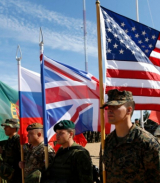 |
Les désaccords transatlantiques sous le second mandat de Donald Trump
FPRI Analysis
04 mars, 2025
Les tensions montent de part et d’autre de l’Atlantique, et la rhétorique s’intensifie. Depuis des mois, l’Europe se prépare au pire, c'est comme ça que la plupart des dirigeants et des observateurs européens voient un second mandat de Donald Trump. Cette fois, ils jurent être prêts à tenir tête au « bullying » du président américain. Plus encore, ils affirment qu’ils sauront en profiter pour faire avancer leur projet d’autonomie stratégique. Le feront-ils vraiment ? Et à quel degré ? Qu’y a-t-il de réellement nouveau dans la relation transatlantique, qu’est-ce qui est un simple prétexte, et quelles sont les motivations sous-jacentes ?
|
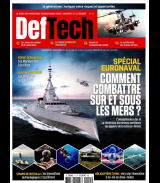 |
Pour le meilleur ou pour le pire : en matière d’armement l’UE s’active
DefTech N°11 octobre-décembre 2024
05 déc, 2024
Il y a dix ans, la Haute représentante pour les affaires étrangères et la politique de sécurité, la britannique Catherine Ashton interdisait encore les uniformes dans les couloirs du Conseil, enceinte pourtant censée mettre en œuvre la « politique de défense » de l’UE. Aujourd’hui l’expertise militaire est très demandée, jusque dans les bureaux de la Commission qui, auparavant, fut soigneusement tenue à l’écart de tout ce qui s’y rapportait. Le collège bruxellois s’engouffre dans la brèche ouverte par la guerre en Ukraine. Au motif de l’urgence et de l’efficacité, il part à l’assaut de l’article 346 du traité qui garantit la maîtrise des États dans ce secteur clé. Le but : devenir un « facilitateur » incontournable dans l’armement, au carrefour de la politique industrielle et de la politique étrangère et de défense.
|
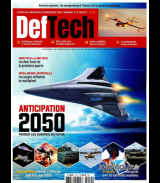 |
L’IA et la hache de pierre : les deux faces de la prochaine grande guerre
DefTech N°10 juillet-septembre 2024
20 juil, 2024
A l’ombre de la course technologique qui s’accélère à toute vitesse, principalement entre Chinois et Américains, les premières phrases d’une nouvelle de science-fiction d’Arthur C. Clarke, publiée en 1951 sous le titre de Supériorité, interpellent. Le narrateur, l’ancien commandant en chef d’une armée vaincue par un adversaire a priori plus faible, raconte : « La cause profonde de notre défaite est extrêmement simple. Un seul facteur a été déterminant : la science inférieure de nos ennemis. Je dis bien la science i n f é r i e u r e de nos ennemis. » Au fil de son récit, il s’avère que ce n’est pas la technologie supérieure en soi qui est à l’origine de leurs malheurs, mais l’hubris des humains qu’une telle supériorité suscite. Difficile, pour le lecteur d’aujourd’hui, de ne pas y déceler des analogies.
|
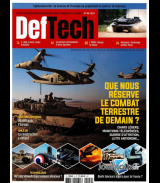 |
Le ciel va-t-il nous tomber sur la tête?L’Europe s’active en matière de défense aérienne/antimissile
DefTech N°9 avril-juin 2024
20 mai, 2024
Extrait: «En matière de défense aérienne et antimissile Berlin apparaît comme une araignée qui tisse sa toile… et Paris comme le dindon de la farce. (...) Berlin s’est donc ouvertement lancé à l’assaut des atouts français, y compris la BITD, que ce soit par le truchement de l’OTAN ou de l’UE. Paradoxalement la première est moins grave : certes l’ESSI capte le marché de l’écrasante majorité des alliés européens et les verrouille dans une coopération fondée en grande partie sur des solutions extérieures, mais au moins elle laisse la France intacte. L’alternative est plus pernicieuse. (…)»
|
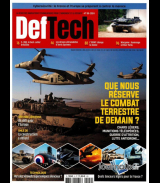 |
Les semi-conducteurs, terrain d’entraînement pour l’ambition « géopolitique » de l’UE
DefTech N°9 avril-juin 2024
05 mai, 2024
La loi européenne sur les semi-conducteurs a pour but de « rétablir un rapport de force dans la géostratégie de la chaîne de valeur », selon le Commissaire européen Thierry Breton. Venant des institutions bruxelloises, l’intention est un fait d’arme en soi. Ce « EU Chips Act », entré en vigueur sous forme de règlement en septembre 2023, vise à doubler la part européenne dans la production mondiale de semi-conducteurs pour atteindre 20% d’ici à 2030. L’UE entend mobiliser 43 milliards d’euros d’investissements à cette fin et esquisse un plan d’action en trois piliers : l’innovation, la fabrication, et un mécanisme de gestion des crises. Avec cette initiative, l’Union opère un virage à 180°. Les termes tabous il y a quelques années deviennent des mots d’ordre : intervention étatique, autonomie, réindustrialisation. Dans un contexte où la « sécurité économique » est propulsée au centre des préoccupations européennes, la loi sur les semi-conducteurs est une sorte de précurseur, dont les résultats et les failles instruiront les futures mesures dans d’autres domaines.
|
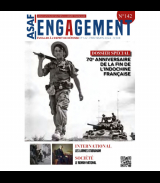 |
L’Alliance atlantique fête ses 75 ans : un anniversaire sous hypothèque
Engagement n°142 printemps 2024
17 mars, 2024
Force est de constater que l’OTAN est un exemple de longévité. S’approchant de son 75ème anniversaire, que ses pays membres s’apprêtent à célébrer au sommet de Washington en juillet, l’Alliance semble même reprendre du poil de la bête, sous l’effet unificateur de la guerre en Ukraine. Toutefois, la pluie d’auto-félicitations ne saurait faire oublier les lourdes incertitudes qui pèsent sur son avenir. Pour les surmonter, cette fois-ci un simple adjuvant ne suffira plus, c’est tout son ADN qu’elle devra repenser. En a-t-elle encore la force, en a-t-elle réellement l’envie ?
|
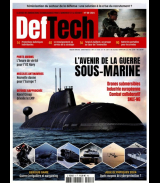 |
Le porte-avions John F. Kennedy, symptôme des dilemmes de la U.S. Navy
DefTech N°8 janvier-mars 2024
19 janv, 2024
(...) La fonction symbolique du porte-avions, étayée par des capacités opérationnelles indéniables, a été soulignée par le président Trump en 2017, à l’occasion de l’inauguration du Ford : « Quels que soient les horizons où se rendra ce navire, nos alliés dormiront tranquilles, et nos ennemis trembleront de peur ». Livrée à la Navy la même année, cette première unité de la nouvelle génération des porte-avions américains ne sera déployée que 5 ans plus tard, du fait de ses multiples déboires techniques. Un cadeau pour ceux qui, à l’intérieur de la bureaucratie du Pentagone, militent pour en finir avec le rôle central des porte-avions dans les planifications stratégiques pour des raisons d’efficacité relative et de vulnérabilité aux nouvelles technologies offensives, et n’hésitent pas à les comparer au feu le cuirassé. Des questionnements aggravés par les surcoûts et retards chroniques. Beaucoup espèrent que le deuxième de la série, le porte-avions John F. Kennedy (CVN-79), prévu pour livraison à la Navy en juillet 2025, fera taire les critiques. A moins qu’il ne les confirme.
|
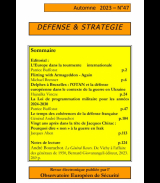 |
Delphes à Bruxelles : l’OTAN et la défense européenne dans le contexte de la guerre en Ukraine
Défense & Stratégie n°47 automne 2023
01 déc, 2023
Une semaine après le déclenchement de la guerre ukrainienne, la présidente de la Commission de Bruxelles déclarait « c’est un moment de vérité » pour l’Union européenne. Des propos dont l’ambiguïté n’est pas sans rappeler le flou délibéré des fameux oracles grecs, Dodone et Delphes. Avec le recul, seront-ils interprétés comme l’annonce d’une détermination et d’un élan européen sans précédent ou, au contraire, comme de mauvais augure anticipant une énième démonstration d’impuissance ? Est-ce le début d’une nouvelle ère pour la sécurité du vieux continent, et si oui, dans quel sens penchera la balance? Assiste-t-on à « la naissance de l’Europe géopolitique » comme le prétend le Haut représentant Josep Borrell, ou à « l’otanisation de l’Europe », pour citer le président Joe Biden ?
|
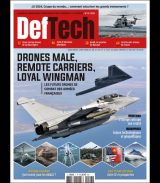 |
Initiatives en matière de munitions : l’Europe se tirera-t-elle une balle dans le pied ?
DefTech N°7 octobre-décembre 2023
20 oct, 2023
La triple décision de l’UE pour stimuler la livraison à l’Ukraine, l’achat en commun et la production de munitions participe de la nouvelle dynamique européenne pour renforcer la base industrielle et technologique, un domaine susceptible de devenir le moteur des ambitions d’autonomie stratégique. Ou, au contraire, leur frein le plus significatif. Tout dépendra des modalités des décisions prises. L’élan politico-rhétorique peut facilement se briser sur l’un, ou plusieurs, des trois écueils : pacifiste, atlantiste et fédéraliste. L’initiative sur les munitions est un cas d’école. Non seulement elle recouvre de nombreux aspects clés de la revigoration en cours et mobilise chacun des trois courants idéologiques, mais elle devra aussi, en toute logique, servir de matrice à d’autres initiatives à l’avenir.
|
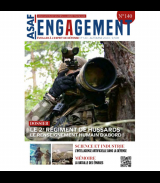 |
La montée du « Sud global »: sortir de nos ornières occidentales
Engagement n°140 Automne 2023
27 sept, 2023
Au sommet de Vilnius de l’OTAN, le président américain Joe Biden se félicite de l’effet unificateur de la guerre en Ukraine, et pas seulement entre alliés : « Cela unifie le monde. C’est un sacré prix à payer, mais c’est en train d’unifier le monde ». On se demande dans quel monde il vit. S’il y a un domaine où les évolutions depuis le déclenchement de la guerre en Ukraine confortent Moscou, c’est justement le découplage croissant entre l’Occident et « le reste », en phase avec les discours russes, et pas que, sur le sujet d’un monde multipolaire.
|
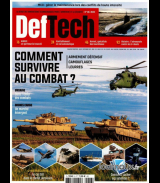 |
AUKUS, un nouveau modèle de partenariat sous stéroïdes
DefTech N°6 juillet-septembre 2023
19 juil, 2023
"A mesure que les plans se précisent, ce n’est pas le volet capacitaire qui se trouve au centre de toutes les attentions, ni même la portée stratégique du pacte tripartite dans la région indopacifique, mais son approche inédite de la coopération industrielle et technologique. A en croire les protagonistes, il s’agirait d’un véritable changement de paradigme. Sous réserve de la réforme de l’un des éléments les plus sclérosés du système américain, le nouveau modèle de quasi-fusion serait appelé à faire tache d’huile. Avis transmis aux autres alliés."
|
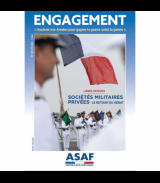 |
Autonomie stratégique : défaire la France sans faire l’Europe
Engagement n°139 Eté 2023
12 juin, 2023
A en croire les récentes déclarations du président Macron en matière de « souveraineté » (européenne, cela s’entend), le concept d’autonomie stratégique, prôné par Paris depuis des décennies, serait en train de conquérir les cœurs et les esprits. Mieux : « la bataille idéologique est gagnée », se félicite-t-il. Mais qu’en est-il vraiment ?
|
 |
PowerPoint transforme-t-il l’armée qui l’utilise ?
DefTech N°5 avril-juin 2023
09 mai, 2023
"Les objections soulevées sont de deux ordres. D’une part, le recours excessif à PowerPoint risque d’empêcher toute réflexion critique et dénature la prise de décision, de l’autre il condamne les officiers subalternes à préparer des diaporamas à longueur de journée : d’où l’expression PowerPoint Rangers, leur surnom. Toujours est-il que la méthode fait tache d’huile. Les partenaires de l’Amérique l’adoptent eux aussi, soit pour pouvoir continuer à communiquer avec l’armée américaine, soit parce qu’ils espèrent ainsi imiter sa « modernité » à peu de frais." (Extrait)
|
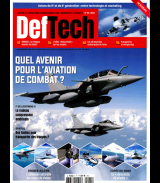 |
Le F-35 : une formidable opportunité… en creux
DefTech N°5 avril-juin 2023
01 mai, 2023
"Ce chasseur-bombardier furtif dit de 5e génération dont la seule description possible s’exprime en superlatifs, est censé « transformer » non seulement le combat aérien mais également la manière de construire des avions, voire la nature même des relations entre alliés. S’il peut finir par les transformer tous, c’est de façon indirecte : en posant les jalons de ce qu’il ne faudrait surtout pas faire." (Extrait)
|
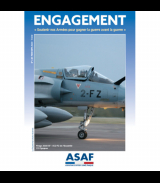 |
La Suède et la Finlande à la porte de l’OTAN : leçons, pièges et faux-semblants
Engagement n°138 Printemps 2023
15 mars, 2023
L’effet boomerang que constitue, pour le président Poutine, l’adhésion prévue d’Helsinki et de Stockholm à l’Alliance atlantique est souvent décrit en ces termes : « Moscou a voulu la finlandisation de l’Ukraine, il aura l’otanisation de la Finlande et de la Suède ». Plutôt que de ressasser une énième fois les éléments déjà bien connus de l’équation – soit des évidences, soit d’importance secondaire – il est temps de se concentrer sur l’essentiel c’est-à-dire sur ce qui se trouve, pour rester dans l’univers nordique, au-dessous de la pointe de l’iceberg. Que nous révèle, nous enseigne et nous cache le processus d’adhésion des deux nouveaux candidats à l’Alliance ? Aucun suspense : sur chacun de ces points, le principal perdant est l’Europe de la défense.
|
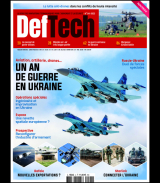 |
Le secteur de l’armement au prisme de la guerre en Ukraine : reconfiguration réelle ou virtuelle?
DefTech N°4
25 janv, 2023
"Ce n’est pas que la guerre russo-ukrainienne soit sans impact, loin de là. Elle accélère les tendances déjà à l’œuvre qui consistent à prendre acte – à l’instar de la Stratégie de défense nationale américaine de 2018 – du durcissement de la conflictualité et de l’exacerbation de la compétition stratégique entre l’Occident et les puissances dites « révisionnistes ». Les livraisons d’armes à l’Ukraine, et plus généralement le passage à « l’économie de guerre », mettent en lumière les tensions au sein du bloc transatlantique sur le plan commercial et industriel. Les décisions prises dans ce contexte, a fortiori dans le secteur de la défense, éclairent les intentions et la détermination des uns et des autres – elles en exposent aussi les limites." (Extrait)
|
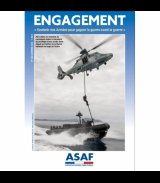 |
Retombées de la guerre en Ukraine – l’Amérique première puissance européenne?
Engagement n°136 Automne 2022
16 sept, 2022
L’otanisation de l’Europe », l’expression vient du président Biden lui-même pour décrire le processus qui s’est déclenché dès le moment où l’armée russe a franchi la frontière ukrainienne. Cela aurait pu se passer autrement. D’aucuns pensaient que les Européens, confrontés à la réalité de la chose militaire qu’ils avaient délaissée depuis des décennies, allaient réagir par un sursaut d’autonomie. Il n’en fut rien. L’expérience a été vécue d’emblée sous le double sentiment de l’impuissance diplomatico-militaire européenne et du parapluie américain véhiculé par l’OTAN et son article 5. La position des Etats-Unis en tant que « puissance européenne » s’en trouve singulièrement renforcée. Durera, ne durera pas ? Des incertitudes existent.
|
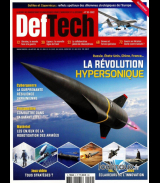 |
Copernicus et Galileo, reflets spatiaux des dilemmes stratégiques de l’Europe
DefTech N°2, juin-août 2022
25 juil, 2022
Mi-février 2022, une semaine à peine avant le déclenchement de la guerre en Ukraine, l’Europe spatiale se réunit à Toulouse au grand complet, dans des formations diverses, pour parler de... l’intensification des rivalités géopolitiques et du rôle crucial qu’y joue désormais l’Espace. Le président Macron commence son discours en évoquant « deux succès majeurs », à savoir « Copernicus qui assure la collecte et l’analyse des données d’observation de la Terre, et Galileo qui permet gratuitement un accès à son positionnement de manière plus précise que le GPS ». A la conférence dédiée à Copernicus, le commissaire européen au marché intérieur, Thierry Breton, parle de « l’évolution des besoins dans un nouveau contexte géostratégique ». Il en profite pour mettre en avant deux priorités toujours prônées par la France : la non-dépendance et la défense. D’un côté, il souligne l’importance de cette « infrastructure souveraine ». De l’autre, au motif de la « résilience », il plaide pour la nécessaire prise en compte de la dimension militaire.
|
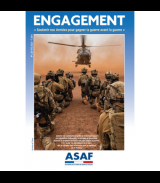 |
L’OTAN l’emporte par KO sur l’autonomie européenne – du moins à court terme
Engagement n°135 Eté 2022
10 juin, 2022
Hier encore « en état de mort cérébrale », la guerre en Ukraine aurait donné à l’OTAN un véritable « électrochoc » selon le président Macron. Dans les cénacles de l’Alliance, il se murmure que c’est l’occasion ou jamais pour venir à bout des dossiers les plus conflictuels. Le mot d’ordre est tout trouvé : l’unité politique est cruciale pour préserver la crédibilité, dans un contexte où même la confrontation nucléaire ne peut pas être complètement écartée. Ce n’est vraiment pas le moment pour s’attarder sur des divergences « idéologiques » en matière de financement en commun, d’achats d’armement, de transferts d’autorité militaire, ou de compétences politiques. L’ambiance est, certes, quelque peu biaisée, mais, comme disait Churchill : « il ne faut jamais gaspiller une bonne crise ».
|
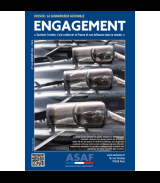 |
Des biscuits et des missiles: en Ukraine, le triangle Washington-Europe-Russie
Engagement n°134 Printemps 2022
08 mars, 2022
À la fin de l’affrontement bipolaire, l’excellent diplomate américain alors ambassadeur à Moscou, Robert S. Strauss, signale à Washington : « L’événement le plus révolutionnaire de l’année 1991 pour la Russie n’est pas l’effondrement du communisme, mais la perte de l’Ukraine ». Trente ans plus tard, le sort de ce pays frère-ennemi reste, pour Moscou, un des points les plus sensibles. Par le truchement de l’OTAN/l’Amérique, c’est à Kiev que se jouent donc, en grande partie, les relations entre l’Europe et la Russie. Washington sait parfaitement bien qu’en maintenant la pression sur ce point névralgique, il garde sa place de maître du jeu dans la sécurité européenne.
|
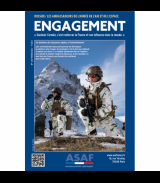 |
Les Etats-Unis retentent leur « pivot » vers l’Asie, cette fois-ci sous le nom d’Indopacifique
Engagement n°133 Hiver 2021
06 déc, 2021
L’expression Indopacifique est apparue sur les radars du grand public avec l’affaire des sous-marins australiens. Concomitamment avec la rupture d’un contrat de 56 milliards d’euros avec la France a été annoncée une alliance stratégique entre l’Australie, le Royaume-Uni et les Etats-Unis (dénommée AUKUS). A quelque chose malheur est bon, le scandale diplomatique qui s’en est suivi a braqué tous les projecteurs sur cette partie du monde. Dans cette zone immense qui est devenue, en ce début du XXIème siècle, le centre de gravité de la croissance et des échanges internationaux, les Etats-Unis entendent peser de tout leur poids, afin d’endiguer l’expansion chinoise. Sur ce point, l’administration Biden s’inscrit dans les pas de Trump, et va même encore plus loin. Paralysés par leurs multiples dépendances – militaire vis-à-vis de l’Amérique, économique par rapport à la Chine – les Européens ont quelques difficultés à ne serait-ce que saisir les enjeux.
|
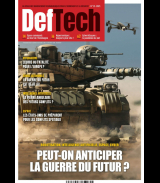 |
Hyperguerre: leurre ou fatalité pour l'Europe?
Revue DefTech N°12, 3e trimestre 2021
25 oct, 2021
« Dans dix ans, une nouvelle guerre majeure en Europe serait une hyperguerre » - c’est en ces termes sans appel que deux anciens commandants de l’OTAN et un éminent spécialiste britannique de l’Alliance introduisent, pour le grand public, la notion d’hyperguerre dans leur récent livre.[1] Ils mettent donc un mot évocateur et facile à retenir sur un phénomène annoncé par beaucoup, à savoir un imminent changement de paradigme de la chose militaire, du fait de l’arrivée sur les champs de bataille de technologies de rupture, au premier rang desquelles l’intelligence artificielle. Le lecteur avisé éprouvera sans doute un vague sentiment de déjà-vu. Les formules et l’ambiance ressemblent à s’y méprendre à la RAM (Révolution dans les affaires militaires) des années 1990. Seules les technologies varient. Il n’en reste pas moins que les Européens se retrouvent, à nouveau, face à un dilemme. Tireront-ils les bonnes leçons de leurs expériences récentes ou se condamneront-ils plutôt à un suivisme pur et simple par rapport à leur allié américain ? Pour une fois, la réponse est peut-être moins évidente qu’il n’y paraît.
|
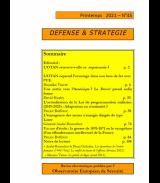 |
L’OTAN reprend l’avantage dans son bras de fer avec l’UE
Défense & Stratégie n°45 printemps 2021
16 juin, 2021
Jamais on n’a autant parlé et aussi publiquement de l’autonomie stratégique européenne que pendant l’année 2020, et rarement auparavant les limites politiques de ladite autonomie étaient apparues aussi crûment. Un paradoxe largement en phase avec l’oscillation de la posture américaine : tandis que sous l’administration Trump même les plus atlantistes des Européens ne pouvaient plus échapper à une certaine prise de conscience, après l’arrivée de l’administration Biden, en revanche, les efforts visent surtout à escamoter le fait que dans les relations transatlantiques seul le ton change.
|
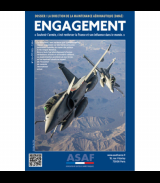 |
Les Européens face à l’ancienne-nouvelle politique étrangère américaine
Engagement n°131
15 juin, 2021
Dès son entrée en fonction, l’administration Biden entérine le changement de paradigme de la politique américaine. Après les détours, les tâtonnements et les approches mi-figue mi-raisin qui ont caractérisé les deux dernières décennies, la nouvelle équipe poursuit et consolide la transition entamée par son prédécesseur honni : le XXIème siècle sera dominé, sans ambiguïté aucune, par la confrontation avec la Chine. Le reste – y compris les autres adversaires, de même que les alliés européens – va être interprété, traité et, le cas échéant, instrumentalisé en fonction de ce duel.
|
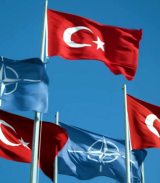 |
La Turquie dans l’OTAN, entre utilité et hostilités
Note IVERIS
26 nov, 2020
Qui peut oublier cette scène surréaliste d’une fin de dîner de l’OTAN en mai 2015 à Antaliya, où à l’invitation du ministre des Affaires étrangères turc, hôte de l’événement, des responsables de l’Alliance et de ses Etats membres entonnent tous ensemble, bras dessus bras dessous, le tube de Michael Jackson et de Lionel Richie : « We are the world » ? Deux ans plus tard, lors d’un exercice OTAN en Norvège, l’ambiance est beaucoup plus morose. Les quarante militaires turcs y participant viennent d’être retirés, à effet immédiat, par leur gouvernement. La cause ? Suite aux initiatives individuelles d’un technicien et d’un officier norvégien, l’image d’Atatürk (fondateur de la République de Turquie) fut projetée comme cible ennemi, et de faux messages au nom du président Erdogan ont été diffusés sur les réseaux sociaux internes de l’OTAN.
|
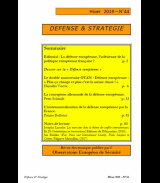 |
Double anniversaire OTAN - défense européenne: « Plus ça change et plus c’est la même chose ! »
Défense & Stratégie n°44, hiver 2019, pp.6-32
30 mars, 2020
Extrait: "Derrière les beaux discours sur « l’autonomie stratégique », la mise en œuvre oppose, comme toujours, le gaullisme résiduel de Paris à l’opinion majoritaire des partenaires qui tiennent à préserver, littéralement à tout prix, la primauté de l’Alliance atlantique. Jusqu’ici rien de nouveau. Sauf que la position française oscille – au pire moment, lorsque tous les événements la confortent pourtant – entre deux approches. Entre « intransigeance sur les principes » et « composer avec le réel », elle espère pouvoir ménager la chèvre et le chou. Autrement dit : avancer vers l’objectif d’émancipation européenne sans trop heurter le tropisme atlantiste-otanien de ses partenaires de l’UE – ce qui équivaut à la quadrature du cercle. Cette démarche a conduit à une extraordinaire confusion dans le discours du président Macron à l’Ecole de Guerre en février 2020, où il a réussi à placer dans un même paragraphe les deux visions antinomiques. D’un côté, il parle de « cette Europe de la défense, ce pilier européen au sein de l’OTAN », de l’autre il met les deux sur un pied d’égalité :« l’OTAN et l’Europe de la défense sont les deux piliers de la sécurité collective européenne » Tôt ou tard, il faudra choisir..."
|
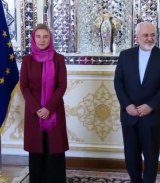 |
L'Iran, l'UE et les Etats-Unis: les Européens à la recherche d'une (relative) autonomie
Foreign Policy Research Institute
28 mars, 2019
Les récents efforts par la France, le Royaume-Uni et l’Allemagne pour mettre en place un mécanisme financier en vue de contourner les sanctions extraterritoriales américaines contre l’Iran sont révélateurs d’un besoin croissant de s’affirmer par rapport aux USA. Depuis de longs mois, les Européens essaient de trouver un moyen pour préserver l’accord nucléaire, en dépit du retrait décidé par le président américain. Leurs manœuvres ont moins à voir avec la politique envers Téhéran, qu’avec le positionnement vis-à-vis des USA, et plus encore avec l’idée que l’Europe se fait d’elle-même en tant qu’acteur international.
|
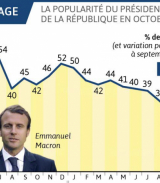 |
« Péripéties » de la présidence Macron : vers un affaissement ou un rebond ?
Foreign Policy Research Institute
27 nov, 2018
Après une première année plutôt réussie, le président français traverse, depuis des mois, une bien mauvaise passe. Certes, il fait toujours d’aussi beaux discours, sur la France, sur l’Europe, sur l’ordre international, et il est toujours beaucoup apprécié à l’étranger comme le défenseur du multilatéralisme (à l’ONU), de l’environnement (récemment sacré « champion de la Terre »), et de l’orthodoxie économique (le FMI et l’OCDE se félicitent tous les deux de ses réformes d’inspiration libérale). En revanche, « son peuple », comme il désigne ses concitoyens dans les médias étrangères, paraît aujourd’hui beaucoup moins enthousiaste.
|
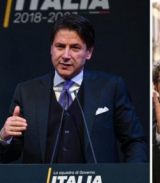 |
Gouvernement « populiste » en Italie : catastrophe ou catalyseur utile ?
Foreign Policy Research Institute
21 juin, 2018
L’entrée en fonction du nouveau gouvernement italien fut accueillie, dans les milieux financiers, médiatiques et par la plupart des dirigeants européens avec un mélange d’inquiétude et d’indignation. Comment l’Italie, un des pays fondateurs de l’Union, son lieu de naissance de par le traité de Rome, a-t-elle pu porter au pouvoir des forces eurosceptiques, antisystème, susceptibles de mettre en péril l’euro, et de créer des tensions sans précédent au sein de l'UE ?
|
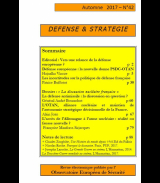 |
Défense européenne : la nouvelle donne PSDC-OTAN
Défense & Stratégie, Automne 2017, n°42, pp. 5-29
05 déc, 2017
Les turbulences dans le ciel européen et transatlantique durant l’année qui vient de s’écouler n’ont évidemment pas été sans incidence sur la cohabitation entre la Politique de sécurité et de défense commune (PSDC) de l’Union Européenne (UE) et l’Alliance atlantique. Les langues se délient, les initiatives se multiplient, de nouvelles perspectives semblent s’ouvrir et provoquent des contrecoups puissants. Quoi qu’il en soit, l’issue va dépendre, une fois de plus, des choix et de la détermination de la France.
|
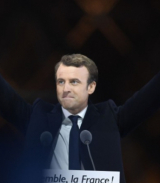 |
La France du président Macron : avis de tempête à l’intérieur et croisée des chemins à l’extérieur
Foreign Policy Research Institute, E-Notes
10 mai, 2017
« On ne sort de l'ambiguïté qu'à son détriment », cette maxime souvent répétée par l’ancien président François Mitterrand sonne comme une mise en garde prémonitoire au lendemain de l’élection d’Emmanuel Macron en France. En effet, les inévitables clarifications risquent d’être particulièrement compliquées pour un président dont la tournure « mais en même temps » est devenu comme une marque de fabrique de sa campagne.
|
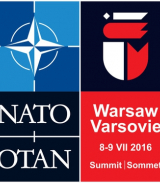 |
Après Varsovie : l’OTAN au sommet de ses contradictions
Défense & Stratégie n°40, automne 2016
19 déc, 2016
Au sommet de l’OTAN à Varsovie, l’objectif affiché était de démontrer, comme le dit le dernier paragraphe du communiqué final, « notre unité, notre solidarité et notre force ». Or sur chacun des trois points, il demeure de sérieux doutes. Qu’il s’agisse de l’unité (faire front commun face aux menaces), de la solidarité (une attaque contre l'un des membres est considérée comme une attaque contre tous) ou de la force (sur ses volets anticipation, décision, action), l’attitude des alliés témoigne de profondes contradictions.
|
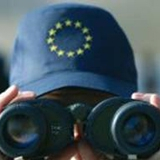 |
Les points de blocage lancinants de l’Europe de la défense
Note IVERIS
14 déc, 2016
"Jamais depuis le lancement de la défense européenne les circonstances ne lui ont été aussi favorables qu’aujourd’hui. Le vote du Brexit a mis sur la touche les éternels poseurs de veto britanniques, et l’élection de Donald Trump à la présidence des Etats-Unis a brusquement mis en lumière les incertitudes liées à une posture de dépendance et de suivisme. Qui plus est, ces deux événements majeurs surviennent dans un contexte où déjà tout plaidait pour une véritable prise en compte des enjeux de sécurité et de défense par les Européens."
|
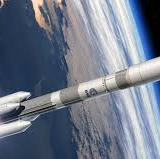 |
Ariane 6 : le début de la fin pour l’industrie spatiale européenne ?
Note IVERIS
01 janv, 2016
Atout stratégique par excellence, le lanceur Ariane est le symbole même de l’Europe spatiale. Fait plutôt rare, c’est un succès à la fois politique, technologique et commercial. Or il risque aujourd’hui d’être détricoté, suite à un transfert inédit de contrôle et de compétences de l’Etat vers des industriels privés.
|
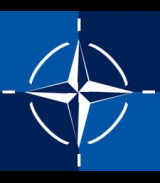 |
L’OTAN cherche à contourner la règle du consensus
Note IVERIS
25 aout, 2015
Le jour s’approche-t-il où l’Amérique pourra, de son seul fait, entraîner l’ensemble de l’OTAN dans une guerre ? La question n’est hélas pas aussi surréelle qu’elle n’y paraît. A la réunion ministérielle de l’Alliance, fin juin, le SACEUR (commandant suprême) « a reçu l’autorité d’alerter, de mobiliser et de préparer les troupes » de son propre chef, en attendant le feu vert du Conseil pour le déploiement sur le terrain. Mais soyons réalistes : les troupes déjà sur le tarmac, les avions prêts à décoller, les tambours battants – difficile d'imaginer comment un Etat membre réticent oserait, à ce stade, monter au créneau pour arrêter la machine de guerre de l’Alliance.
|
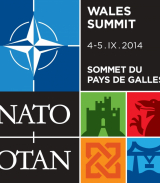 |
L'Alliance atlantique face à la crise ukrainienne (Bilan du sommet de l OTAN au pays de Galles)
Défense & Stratégie n°36, automne 2014
13 nov, 2014
Quelques extraits de l’article « L’Alliance atlantique face à la crise ukrainienne : la réatlantisation de l’Europe (Blian du sommet de l'OTAN au pays de Galles) », qui vient de paraître dans la Revue Défense & Stratégie.
« D’après le discours officiel, le sommet de 2014 de l’Alliance aurait « largement changé d’orientation » à la suite de la crise russo-ukrainienne. En réalité, chacune des supposées nouvelles orientations, chacun des soi-disant changements (tous liés, d’une manière ou d’une autre, au retour en force de la défense collective à travers l’article 5) n’est que la reprise de thèmes et la réaffirmation de priorités qui avaient été prévus depuis longtemps. »
|
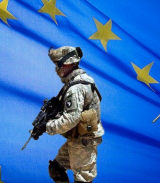 |
Pente glissante : la réatlantisation de l Europe de la défense
The Federalist Year LV, 2013
31 déc, 2013
La réatlantisation de l’Europe de la défense est en marche.[1] Que ce soit la crise en Ukraine, offrant visiblement un formidable prétexte aux efforts de rebond de l’OTAN ; ou notre inexorable enfermement dans le piège de la coopération avec l’Amérique en matière d’armement ; ou les pressions qui s’accentuent pour civilianiser la PSDC y compris ses groupements tactiques ; ou encore le nouveau discours de symbiose transatlantique ; il s’agit à chaque fois de manifestations palpables d’un choix délibéré de la part des élites euro-occidentales. Un choix qui va pourtant à contre-courant de ce que dicteraient les événements, le bon sens, nos intérêts et notre dignité. Sans parler du désir (assez peu perceptible, il faut le dire) de tenir, tant bien que mal, notre place dans la « mêlée mondiale »
|
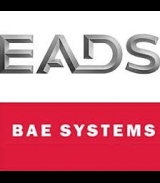 |
Les politiques d’armement en Europe à travers l’exemple de l’affaire BAE Systems-EADS
Défense & Stratégie n°33, automne 2012
15 nov, 2012
La tentative de fusion entre British Aerospace System (BAESystems)[1] et European Aeronautic Defence and Space Company (EADS)[2] a échoué malgré les louanges de la presse et en dépit du soutien que lui apportaient, sous le double slogan de « l’Europe » et de « l’efficacité/rentabilité », à la fois les politiques et le monde des affaires. Cet échec fut-il inéluctable ou le fruit d’un heureux concours de circonstances ? Une chose est certaine : qu’il s’agisse de ses acteurs, de son ambition ou de sa méthode, derrière la prétendue logique d’une telle fusion, transparaissent de toutes autres considérations.
|
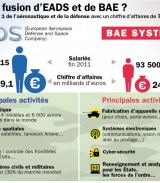 |
L’échec de la fusion BAE-EADS : que reste-t-il après une tentative de trahison ? L’intention…
Theatrum Belli
19 oct, 2012
La faillite du projet de fusion BAE-EADS fut accueillie par un mélange de déception, de tristesse et de noble fureur par la quasi-totalité des commentaires. Déception et tristesse pour l’Europe, supposée être la grande perdante de l’affaire, et fureur contre les Etats égoïstes, qui auraient manqué cette superbe occasion rien que pour satisfaire leurs vilains intérêts. En y regardant de plus près, ce poignant récit devient exactement son inverse. L’Europe devrait être soulagée d’avoir reçu une seconde chance avant de se réveiller un jour pour voir son secteur stratégique télécommandé depuis Washington par le duo Pentagone-Maison Blanche. Et le seul reproche que l’on puisse faire aux gouvernements (à part leurs mobiles, parfois bien piteux au regard des enjeux), c’est qu’ils n’ont pas été plus fermes.
|
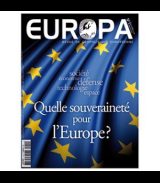 |
Autonomie ou assujettissement : la dimension militaire de l'impératif de souveraineté européenne
Europa, n°1, novembre 2009
15 nov, 2009
Aussi complexe que puisse paraître le sujet indiqué dans le titre, le point de départ de l’analyse peut être réduit à trois constats simples. Dès qu’il s’agit de souveraineté, nos rapports avec l’Amérique sont au cœur du problème. Or, les relations transatlantiques ont pour caractéristique fondamentale la dépendance européenne. Or, l’indépendance est la condition sine qua non de la crédibilité et du libre-arbitre ou, en d’autres termes, de l’existence même au sens géopolitique.
|
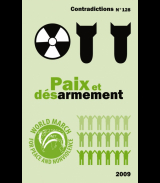 |
Parapluie ou hara-kiri ? – la présence nucléaire américaine en Europe
Contradictions n°128 (Paix et désarmement)
09 oct, 2009
Bien trop souvent, on est tenté d’assimiler la présence nucléaire américaine en Europe à sa seule dimension tangible. A savoir le stationnement de quelques centaines de bombes US sur le sol de cinq pays du continent européen, dans le cadre de l’OTAN et de son soi-disant « partage nucléaire ». Et on a tort de le faire.
|
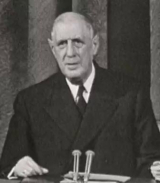 |
Le Général face à l OTAN: une analyse toujours actuelle
La Lettre Sentinel n°51, avril 2009
01 avril, 2009
Une des formules récurrentes dans les discussions sur le plein retour de la France à l’OTAN, quoique admise de tous côtés comme une évidence, mérite néanmoins que l’on s’y arrête un instant. Il s’agit du contexte géostratégique qui aurait subi, paraît-il, d’énormes changements. De prime abord, c’est un truisme: l’URSS a disparu, la guerre froide est terminée, l’Europe de la Défense créée – si bien que le Général de Gaulle et ses chamailleries avec l’OTAN semblent résolument appartenir au passé. En réalité, aucune des mutations, certes indiscutables, de ces quarante dernières années n’est de nature à remettre en question le bien-fondé de la décision de 1966. A y regarder de plus près, on dirait plutôt qu’elles le confirment.
|
 |
L'Europe face à un monde multipolaire en déséquilibre
The Federalist Year LI, 2009
07 mars, 2009
La place de l’Europe est loin d’être assurée sur l’échiquier géopolitique, actuellement en pleine reconfiguration. Pourtant, cela fait déjà un bon moment que les évolutions en cours sont amorcées et que les grandes lignes de ces mutations se dessinent de manière plutôt limpide. Ce que l’on désignait, au lendemain de la disparition de l’Union soviétique, comme « le moment unipolaire » touche inexorablement à sa fin, n’en déplaisent à ceux qui voulaient, et pour certains voudraient encore, y placer tous leurs espoirs. Les Etats-Unis, toujours soucieux de maintenir leur leadership dans les affaires de la planète, ont été longtemps agacés d’entendre parler de « monde multipolaire ». Ils y voyaient l’expression codée d’un complot anti-américain. Auquel agacement les responsables européens, en particulier français, n’avait de cesse de rétorquer qu’il s’agissait non point d’un projet, mais d’un constat tout simple.
|
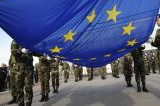 |
Bilan 2008 de la politique de sécurité et de défense de l’Union européenne
Défense & Stratégie n°25, hiver 2008
31 déc, 2008
L’année 2008 fut celle d’un triple anniversaire et d’une double illusion en matière de défense européenne. Il y a quinze ans, l’entrée en vigueur du traité de Maastricht marque le lancement officiel de la PESC (politique étrangère et de sécurité commune), assortie de la perspective d’une éventuelle future composante défense.
|
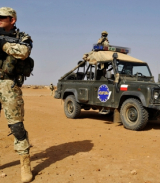 |
Bilan 2007 de la politique de sécurité et de défense de l’Union européenne
Défense & Stratégie n°22, janvier 2008
20 févr, 2008
Le petit tour d’horizon qui suit se propose de résumer les principaux développements de l’année 2007 en matière de Défense européenne. Pour ce faire, deux remarques préliminaires s’imposent. La première est terminologique ; elle concerne la dénomination PESD (politique européenne de sécurité et de défense) utilisée jusqu’à aujourd’hui, y compris dans cet article. Elle deviendra, une fois le nouveau traité ratifié, la PSDC (politique de sécurité et de défense commune). La deuxième remarque consiste à souligner que les développements et les débats au cours de l’année 2007 continuent à graviter autour du concept le plus controversé de la Défense européenne, à savoir le terme « d’autonomie ». |
 |
Europe européenne ou Europe atlantique : une question de «préférence»…
La Lettre Sentinel n°47, octobre 2007
31 oct, 2007
Ces derniers mois ont vu le retour en force du bon vieux débat « protectionnisme » versus libéralisme. Autrement dit, sur les rôles respectifs du politique et de l’économique, ou encore le face-à-face entre logique de puissance et logique du marché. Avec la question implicite sur la nécessité d’une « préférence européenne », et la mise à nu immédiate des contradictions inhérentes du credo libéral-atlantiste.
|
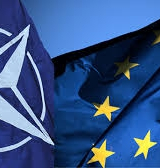 |
Le syndrome UE-OTAN: coup de projecteur sur les réalités transatlantiques
Journal of Contemporary European Research Vol3 I2
21 sept, 2007
Contrairement aux deux courants dominants, quoique diamétralement opposés, des pronostics qui furent très à la mode il y a quelques années, il apparaît de plus en plus clairement que les casse-tête liés à la problématique UE-OTAN sont appelés à durer. Ceux qui, au vu des difficultés initiales à établir des relations mutuellement acceptables entre les deux organisations, parlaient de « maladies de jeunesse » susceptibles de céder la place, avec le temps, à une insertion harmonieuse du nouveau-né « PESD » (politique européenne de sécurité et de défense) dans le système atlantique, ont eu tout aussi tort que ceux qui y voyait encore une nouvelle occasion pour sonner le glas de l’Alliance atlantique. Hélas, pour l’heure et dans un avenir prévisible, aucun des deux scénarios ne semble près de se réaliser.
|
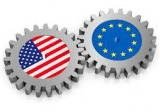 |
Les questions d’armement sous un éclairage transatlantique
Présentation à l’Université d’été du CIFE-IEHEI
04 sept, 2007
Après avoir relevé quelques enjeux liés au secteur de l’armement, un bref rappel historique propose de clarifier le contexte des débats actuels. On abordera ensuite certaines caractéristiques générales de l’industrie de défense américaine d’une part, européenne de l’autre. Finalement, des mythes trompeurs seront décryptés, notamment l’imposture de l’« écart » technologique, la sainte horreur inspirée par la notion d’« Europe forteresse » et l’éloge tendancieux de la « complémentarité ».
|
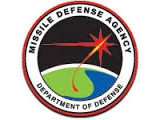 |
Levée de bouclier(s) : interrogations autour du projet américain de défense antimissile
La Lettre Sentinel n°45, mars-avril 2007
06 avril, 2007
Durant la dernière année de l’administration Clinton et les neuf premiers mois de l’équipe Bush au pouvoir, un large consensus s’était dessiné dans les conférences d’experts et les réunions semi-officielles des deux côtés de l’Atlantique : tout le monde fut d’accord pour dire que la NMD (National Missile Defense) allait devenir « le » grand sujet de controverse des mois et années à venir.
|
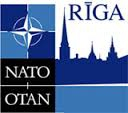 |
Champs de bataille otaniens après le sommet de Riga
La Lettre Sentinel n°43-44, janvier-février 2007
09 févr, 2007
Le sommet de Riga de l’OTAN, fin novembre dernier, fut l’exemple type du non-événement spectaculaire. Frappant surtout par le contraste entre les attentes aiguisées par la publicité faite à la rencontre des 26 chefs d’Etats et de gouvernement d’une part, et le bilan piteux de la réunion de l’autre. Les effets d’annonce prévus pour l’occasion avaient peu à peu laissé la place à la réalité envahissante que constitue la déplorable situation des alliés en Afghanistan. Celle-ci n’étant, par ailleurs, que l’un des (très) nombreux symptômes du malaise grandissant au sein de l’Alliance.
|
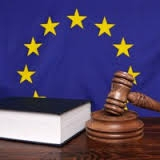 |
Article 296: ami ou ennemi?
EuroFuture Magazine, Winter 2006
01 janv, 2007
Le secteur de l'armement est le champ stratégique par excellence, que ce soit en termes géopolitiques, économiques ou technologiques. Du fait de la coïncidence entre les questions les plus abstraites liées à la souveraineté et la nature la plus tangible des produits (origine, composition, conception), les politiques poursuivies dans ce domaine sont particulièrement indicatives de, et déterminantes pour, la direction que l'Europe est sur le point de prendre.
|
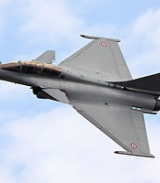 |
L'article 296 du TCE : obstacle ou garde-fou ?
Défense & Stratégie n°18, octobre 2006
31 oct, 2006
Assiégé de toutes parts, l’article 296 (ex-article 223) du traité instituant la Communauté européenne apparaît pour certains comme un anachronisme. En établissant une dérogation générale au droit communautaire dans le domaine de la production et du commerce du matériel militaire, il serait l’incarnation même d’un « protectionnisme » hideux, rétrograde, anti-marché et anti-européen.
|
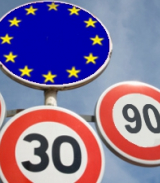 |
Devenir souple pour maintenir l’ensemble: la logique et les pièges du concept d’«intégration différenciée »
The Federalist, XLVIII, 2006, N° 1
28 oct, 2006
Le présent article donne un bref aperçu des aspects terminologiques, historiques, théoriques et politiques des scénarios « d'intégration différenciée ». Il part du fait que si la « flexibilité » est le seul moyen de consolider l'acquis et de poursuivre le projet d'intégration, la différentiation ne mène pas automatiquement à une Europe plus ambitieuse, plus puissante et plus européenne. Afin d’assurer un tel résultat, les pionniers de la flexibilité doivent prêter une attention particulière à deux critères cruciaux.
|
 |
Prospective sur la défense européenne
Biztonságpolitikai és Honvédelmi Kutatások Központ
06 aout, 2006
Il convient d’abord de souligner que ni les élections françaises de 2007, ni celles aux Etats-Unis en 2008 n’altèreront de manière notable – c’est-à-dire outre les gestes et effets d’annonce programmés pour ces occasions – les orientations traditionnelles de la politique étrangère et de sécurité des pays en question. De même, les péripéties du nouveau traité européen, le rythme effectif de la fuite en avant de l’UE par l’élargissement, et les multiples initiatives transatlantiques basées sur des changements d’emballage à Washington sont parfaitement secondaires du point de vue de l’évolution réelle de la construction européenne et de nos relations avec les Etats-Unis.
|
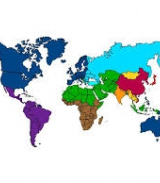 |
La relation « Islam-Occident » : deux mondes ?
Globális biztonsági kihívások (ed. Tarrósy I.-Glied V.)
25 avril, 2006
Lorsque l’on examine les rapports entre civilisations, il faut avant tout clairement distinguer les acteurs étatiques pourvus du droit et de la capacité à l’action politique, et les sphères culturelles d’envergure et de cohésion variables, lesquelles ne le sont pas. Comme l’avait observé l’excellent analyste américain, William Pfaff : « Aucune de ces civilisations, assez arbitrairement définies, n’est ou n’a été, en tant que telle, une entité ou un acteur politique. Les nations agissent. Les gouvernements font des guerres. Mais les civilisations ne sont pas des unités politiques et aucun indice ne prouve qu’elles le deviendront. » Ceci ne signifie nullement, on le verra par la suite, une quelconque sous-estimation des facteurs culturels et identitaires.
|
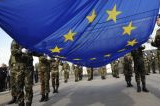 |
Petit aperçu sur la politique étrangère, de sécurité et de défense de l’Union européenne
Etudes et analyses, 08 avril, 2006
D’après la fameuse phrase prononcée au début des années 1990 par le ministre luxembourgeois des Affaires étrangères, Jacques Poos, l’UE est « un géant économique, un nain politique et un ver militaire ». Si cette définition est loin d’être tout à fait fausse, elle n’en a pas moins besoin d’une mise à jour et, surtout, d’une bonne dose de clarification.
|
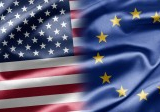 |
Les relations transatlantiques à la lumière des industries d’armement
Lecture at Jozsef Antall Foundation, Corvinus University
05 avril, 2006
Les limites du présent cadre ne permettent que d’esquisser une vue d’ensemble forcément approximative des processus politiques et des enjeux stratégiques qui se trouvent derrière les dossiers d’armement. La ligne directrice en est simple : dans le domaine des industries et des technologies d’armement, il s’agit des bases matérielles de la souveraineté, autrement dit des piliers concrets de la capacité autonome de décision et d’action. Chacune des mesures en matière de recherche, de développement, de production et d’acquisition est une décision politique au sens le plus strict du terme. C’est en cette qualité qu’elle doit être appréhendée et transférée du cercle restreint des spécialistes vers la place publique. Car les décisions politiques méritent débat politique.
|
 |
L'Europe en cercles multiples: variations sur le thème de l intégration «flexible»
Külügyi Szemle 2005/3-4
15 nov, 2005
La présente analyse étudie l’un des points cruciaux des débats sur l’évolution de l’Union européenne, à savoir la problématique de la « différenciation ». En soulignant au sujet de cette méthode d’intégration connue sous les noms de « Europe à plusieurs vitesses », « noyau dur » ou « Union à géométrie variable » qu’elle n’est en soi ni positive, ni négative. La question de savoir si la montée en puissance de la différenciation mènera à la désintégration ou à la redynamisation de l’intégration dépend in fine de deux choses : au service de quelle politique et suivant quelles modalités les mesures visant à la flexibilité seront-elles mises en œuvre.
|
 |
Les relations UE-OTAN: entre coopération nécessaire, compétition inhérente et l’inéluctable changement de paradigme
Az Észak-atlanti Szerződés Szervezete a változás korában
15 aout, 2005
Les relations UE-OTAN ne sont qu’un symptôme. Elles reflètent d’un côté l’épreuve de force entre les deux rives de l’Atlantique et, de l’autre, la schizophrénie intra-européenne. Au centre de ce bras de fer complexe, il y a une seule question cruciale et un seul véritable enjeu : l’autonomie européenne. Pour ce qui est du prétendu choix à faire entre coopération ou compétition UE-OTAN, c’est un faux dilemme. Dans l’état actuel des rapports de force, les deux sont inévitables.
|
 |
Perspectives et limites de l’Union européenne dans la lutte contre le terrorisme
Európai Szemle, 2004/2
01 aout, 2004
Par pure coïncidence, c’est à Madrid, en décembre 1995 que le sommet de l’UE eut lieu où les chefs d’Etat et de gouvernement des Quinze ont affirmé, pour la première fois, au sujet du terrorisme tout ce qu’ils ne pouvaient que répéter huit ans après – à la suite des attentats du 11 mars 2004.
|
 |
Visions et contre-visions, ou sur les contradictions fondamentales des relations transatlantiques
Külügyi Szemle 2003/4
01 déc, 2003
La crise irakienne n’a fait que révéler au grand jour les tensions structurelles des relations euro-américaines, couvées depuis des décennies et devenues plus épineuses après la fin de la période bipolaire. Outre la pseudo-vision officielle et les visions d’occasion représentées par les inconséquences allemandes, les deux grandes visions, concurrentes l’une de l’autre, sur l’Europe, les relations transatlantiques et l’ordre international sont défendues par la Grande-Bretagne et la France.
|
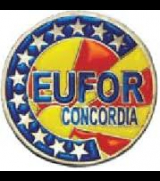 |
Au-delà du symbolisme : la première opération militaire de l'UE vue dans son contexte
Die Deutsche Gesellschaft für Auswärtige Politik
01 juil, 2003
A casual observer of Concordia – code-name for the European Union’s first-ever military operation, conducted in Macedonia – would be first impressed by the abundance of symbols in almost every aspect of the mission. Not only do the politicians’ declarations put the emphasis on the „symbolic European message” carried by the operation[1] or present it as a „significant step forward in the long process of European integration”[2], but also the EU seems determined to plant its blue flag all over the place in order to increase its visibility – a goal explicitly identified as one of the key objectives of the mission.[3]
|
|
 |
Les plus lus

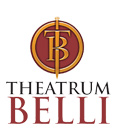
|



